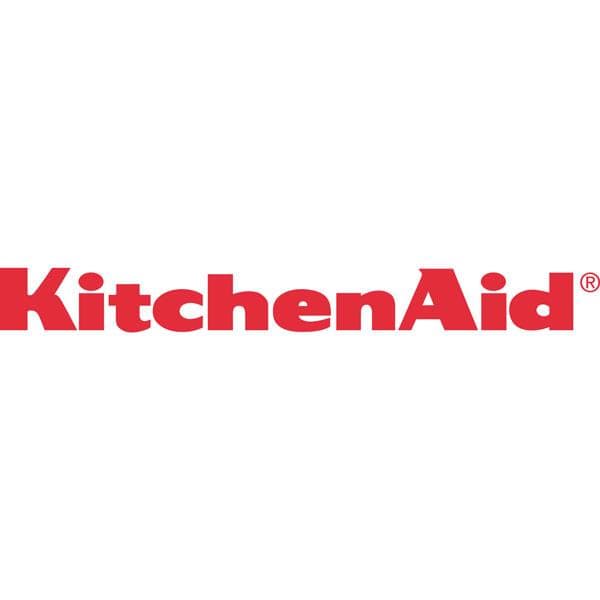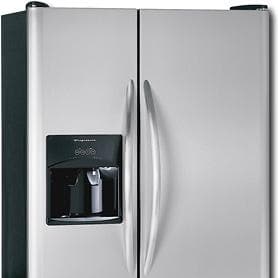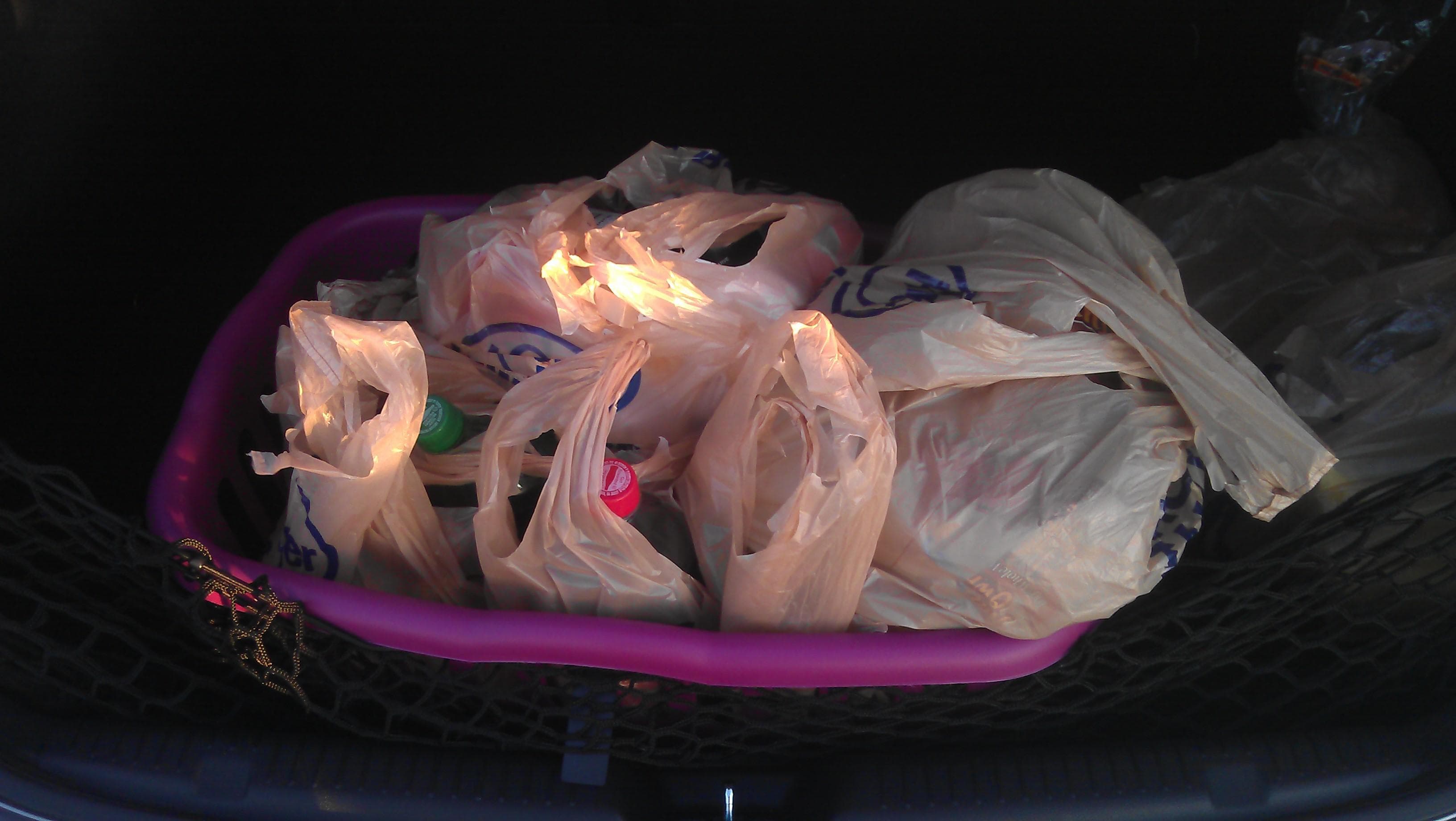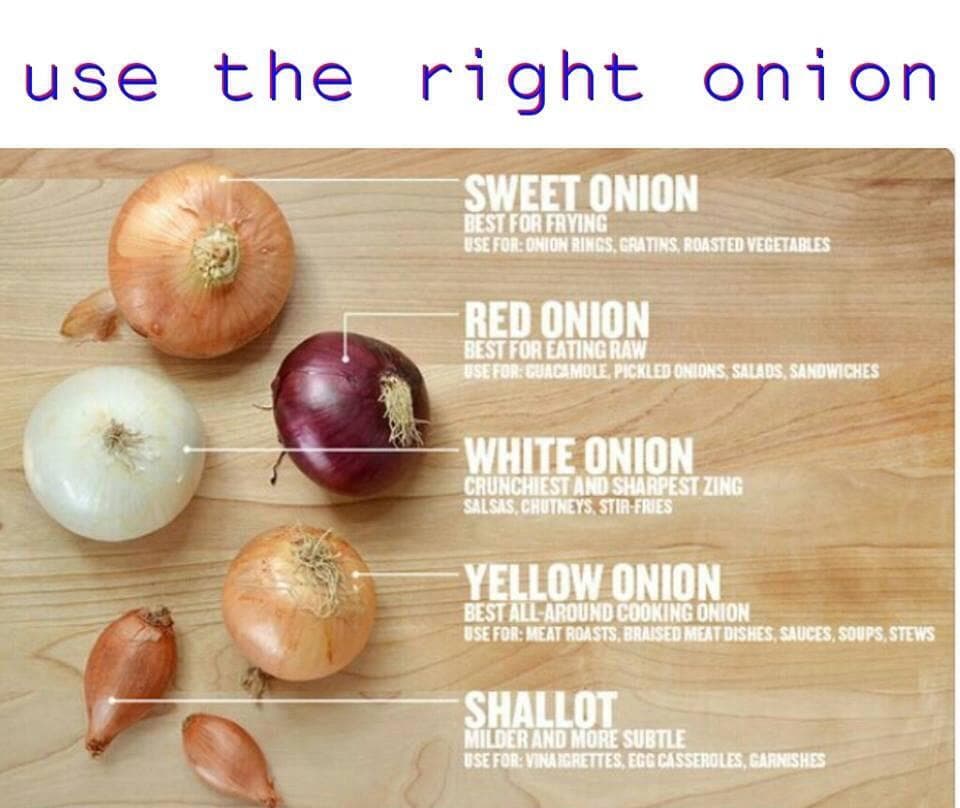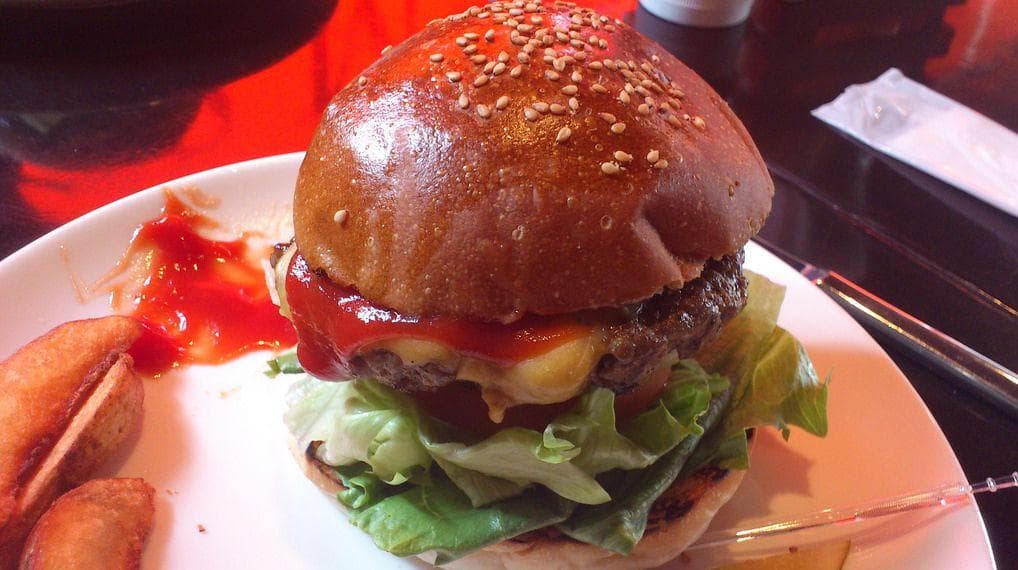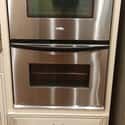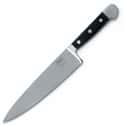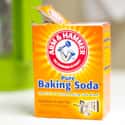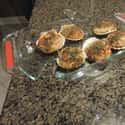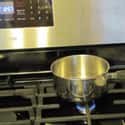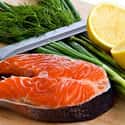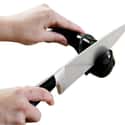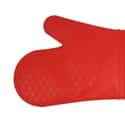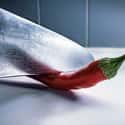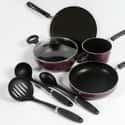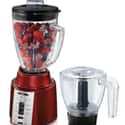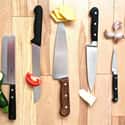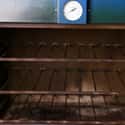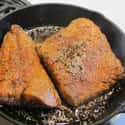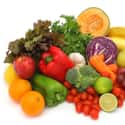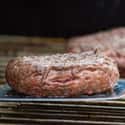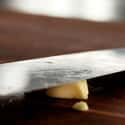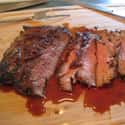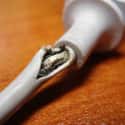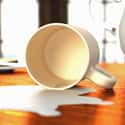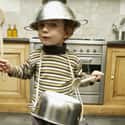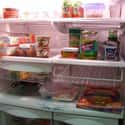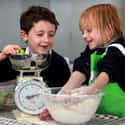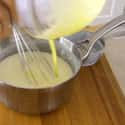(#1) Keep The Door Closed On Oven Fires
If a fire starts in the oven or microwave, don't panic. Just keep the door closed and turn off the oven or microwave. Opening the door will just give the flames more access to oxygen, which simply fuels a fire. Keep the door closed and the lack of oxygen will suffocate the flames.
(#2) Don't Try To Catch A Falling Knife
Okay, this seems kind of obvious, but it's instinctual to try to catch something that's falling. Instead, it's just safer to get out of the way.
(#3) Use Baking Soda Or Salt To Extinguish Grease Fires
According to Lifehacker, "Baking soda puts out fires by releasing carbon dioxide and smothering the fire." But it turns out salt works just as well - whichever you have handy.(#4) Don't Put A Hot Glass Dish On A Cold Surface
There's a lot of science behind this one. Glass expands when it gets warm and shrinks when it cools down, but the growing and shrinking is not uniform, which causes stress, and thus, major explosions.
(#5) Turn Pot And Pan Handles To The Side
Don't let your pot and pan handles stick straight out from the stove. Keeping them turned sideways is the best way to avoid spills and flips.
(#6) Don't Use the Same Cutting Board for Raw Meat as You Use for Fruits and Vegetables
The FDA advises you use two separate cutting boards: one for raw meat, poultry, and seafood and a second one for fresh fruits and vegetables. If you don't have two cutting boards, the FDA suggests: "prepare fruits and vegetables first, and put them safely out of the way. Wash cutting boards thoroughly with soap and hot water. Then, prepare the raw meat, poultry, or seafood. Follow by washing the cutting board again."
(#7) Make Sure Your Knives Are Sharp
A sharp knife will do the job quickly and won't require as much force as a dull one. Since a dull knife will require more force, there's a greater chance you'll slip and accidentally cut yourself.
(#8) Don't Take Food Out Of The Oven With Wet Mitts
Wet oven mitts can cause scalding because water allows the insulated fabric of the mitt to conduct dangerous levels of heat. Try using silicone mitts instead.
(#9) Wash Your Hands After Chopping Peppers
When you cut a chili pepper, it releases oils that coat your skin. Simple water and soap won't do much for washing this off. As The Kitchn suggests, use dish soap, rubbing alcohol, or even a milk bath to get the oils off to avoid that burning sensation. And whatever you do, don't touch your eyes for a good long while.(#10) Don't Use Metal Utensils On Nonstick, Teflon Pans
When Teflon or non-stick pans chip or flake, they "may be more likely to release toxic compounds." That's why you should avoid using metal utensils, and instead stick to wooden or plastic spoons to stir food you're cooking in these kinds of pans.
(#11) Keep Blenders Clean By Blending Soapy Water
Blenders are annoying to clean, but even worse is the dirt and potential bacteria that gets left behind when you don't immediately clean the blender (not to mention accidental hand-to-blade contact). Take the hassle out of this task by blending soap and warm water for a minute after you finish making your smoothie.
(#12) Use The Correct Knife For The Job
Simple Bites advises, "using the correct knife can actually improve your cooking." So use your paring knife for small tasks like trimming mushrooms, and save the bread knife for bread!(#13) Check Your Oven Before You Pre-Heat It
It's not uncommon for people to store things in their oven. That's why you should double check your oven before pre-heating it to make sure there's nothing in it, like plastic cutting boards or anything else that might catch fire.
(#14) When Pan Frying, Always Flip Food Away From You
Make sure you flip away from yourself when you are cooking food in hot oil or butter to avoid any hot splatters from landing on you. Want to double check your technique? Check out this video from Cooking with Class.(#15) Properly Store Fruits And Vegetables
Perishable fresh fruits and vegetables (like strawberries, lettuce, herbs, and mushrooms) should be stored in a clean refrigerator at a temperature of 40° F or below. Make sure that you refrigerate all produce that is purchased pre-cut or peeled.
(#16) Follow Safe Minimum Cooking Temperatures
The best way to keep your family safe from foodborne illnesses like salmonella and E. coli is to cook meat until it reaches its minimum cooking temperature. You can double check that temperature at Foodsafety.gov.
(#17) Smash Garlic With The Side Of Your Knife
Rather than trying to smash garlic with your hand or a kitchen mallet, use a knife. Food Network advises this method: "Lay the flat side of your knife over the clove while holding the handle. With the heel of your other hand, carefully give your knife a good whack... this will separate the skin from the clove."
(#18) Don't Use Marinade from Raw Meat or Fish as a Sauce
Because the marinade contains bacteria from the raw meat, make sure you toss it. You can also choose to boil it for several minutes to kill any bacteria that might have been transferred to it during the marinating process.
(#19) Check Your Plugs And Appliance Cords
Over time, and with use, appliance cords on coffee makers, toasters, blenders, microwaves, and mixers can fray, leaving open areas of electric current which can lead to fires. Because of this, you'll want to check them often, and repair as needed. Take this time to also make sure your plugs have 3-prong grounded connections.
(#20) Clean Up Spills Immediately
Spills happen. They're inevitable. But the best way to keep yourself safe when they do happen is to clean them up immediately. As About Food advises "Water, food, and grease on the floor will almost guarantee a fall."(#21) Keep Kids And Pets Out
You love your kids and pets, but they can definitely get under-foot easily. The worst place for that to happen is in the kitchen. The best way to avoid accidents and spills is to make sure that Jr. and Rover stay out of the kitchen while you're cooking.
(#22) Thaw Food Safely
According to the FDA, "There are three ways to thaw safely: in the refrigerator, in cold water, and in the microwave. If you thaw food in cold water, change the water every half hour to make sure it stays cold. Foods thawed in the microwave must be cooked immediately after thawing."(#23) Know How To Delegate Safe Tasks To Helpful Kids
Kids are bound to be interested in what goes on the kitchen. If you have a little one who wants to help, know what tasks they are able to handle. For example: measuring ingredients, washing fruits and veggies, stirring ingredients, and setting the table.
(#24) Temper Eggs When Baking
Tempering eggs is crucial when you're making custards or puddings. Tempering is when a hot liquid (usually milk) is carefully streamed into the eggs, which brings the eggs up to a very high temperature without cooking them. This is the best way to avoid lumps or a whole batch of scrambled egg pudding that has to be thrown out.
New Random Displays Display All By Ranking
About This Tool
There are flammable and explosive hidden dangers in our daily life, especially in the kitchen where we need to use it every day. It is necessary to pay more attention to fire prevention, because the kitchen is an open flame for cooking and stores fuel, cooking oil, and other combustibles. There are many details that need to be noticed when we use the kitchen daily, such as knives and food poisoning.
When cooking with sharp knives and open flames, accidents will inevitably occur in the kitchen. The random tool shares 24 useful and important tips for kitchen safety that everyone should know.
Our data comes from Ranker, If you want to participate in the ranking of items displayed on this page, please click here.



